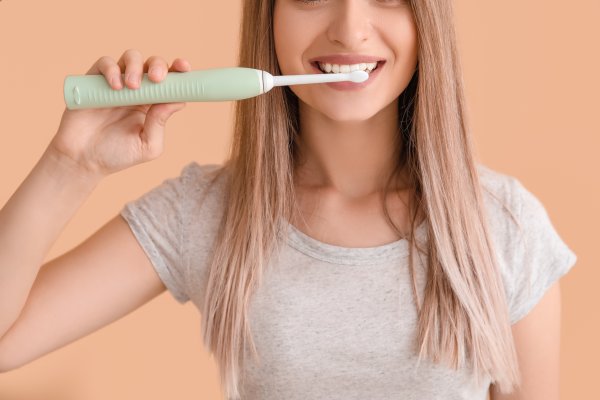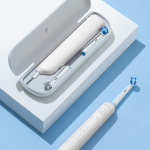When it comes to brushing the teeth, users can never be too sure when using manual toothbrushes. These are the ones that can be bought conveniently everywhere because of its traditional design, featuring a plastic handle with its brushes. Its efficiency largely depends upon the number of strokes of the human hand, the intensity by which you brush your teeth, and the effectiveness of the brush for fitting through the small crevices of the teeth. Because of this, many people have transitioned to the electric toothbrush which is more convenient, filled with a lot of features, and is generally better for cleaning. Aside from this, though, ionic toothbrushes have lately been a hot topic in the dental hygiene market.
An ionic toothbrush mainly uses the concept of opposites attract as proven by physics to clean the teeth. Given that the teeth usually have a negative charge while the dirt and plaques have a positive charge, the two easily stick. With an ionic toothbrush, the user can make the charge of the teeth positive so as to repel the plaque. This is made possible with its creation of a closed circuit within your mouth which includes the teeth, the plaque, and the saliva. With this, any dirt in the teeth easily slides away from it without the need for direct contact and pressure from the user.
At the same time, users also do not need to use toothpaste. This is because these are usually used to improve the sliding motion when using an electric or manual toothbrush. Ionic toothbrushes have a charged metal or specifically a titanium bar inside the unit which can enable the use of charged particles to clean the teeth which can last for up to two years or more of regular usage.
With the introduction of charged particles, some may fear being electrocuted from the unit which is not exactly unfounded. The good news is that the unit is very safe to use as it only uses low energy levels to make it possible for everyday usage. It cannot raise its charge enough to be harmful or to cause irritations or numbness whenever using the product. In fact, many users have complimented the product for making their teeth very smooth after using the product because of its use of charged particles.
When it comes to cleaning efficiency, the best product to use for comparison is the electric toothbrush. This is because it is capable of thousands of strokes per minute at least which is miles ahead of manual brushes which can only reach hundreds of strokes per minute mainly because of human strength. Aside from this, these units have a lot of features to maximize cleaning such as oscillation, rotation, and 3D cleaning. With the use of laboratory tests by reliable researchers, it was found that the cleaning performance between an ionic toothbrush and an electric toothbrush is statistically the same, meaning that users can rely on both for everyday cleaning.
Electric toothbrushes have been around for a long time, and because of this, have innovated to fit more users’ needs. Popular brands such as Sonicare and Oral B have created features such as Sensitive Clean, Teeth Whitening, Sensitive Clean, and more which makes it easier to be used by any user. They also offer abundant brush head types that can specifically fit the need to massage the gums, reach the edges of the teeth, and more.
In comparison, ionic toothbrushes are generally more limited in their options which can be seen with its current iterations in the market. Currently, these brushes only come with standard brush heads similar to manual toothbrushes. It is greatly limited in this aspect as it does not need much pressure when brushing the teeth which makes it incapable of providing force enough to whiten the teeth or provide cleaning from different angles. While this is expected to change with more innovations from the companies that provide it, this is its current condition in case users may want to buy one today.
However, this should not affect users at all if maximum cleaning is all that they need. In fact, the use of charged particles to clean the teeth may actually make it easier to use compared to electric toothbrushes. With this, there is barely any contact or hard pressure to the teeth. This prevents any cases of accidentally stripping the enamel of the teeth which can make it sensitive to the teeth. This also makes it very easy to use for children who are only starting to learn how to use a toothbrush.
Lastly, ionic toothbrushes may just be cheaper to maintain. It is common knowledge that electric brushes need to have its brush head replaced every 3 months to ensure that it will be hygienic and efficient for cleaning. Ionic toothbrushes also require this. However, its brush heads are generally cheaper as it is not the main focus of the product and is only used to remove the dirt and debris taken from the teeth with gentle force. In contrast, electric toothbrushes need these brush heads to be able to remove plaque from the teeth which is why it is more specialized and generally more expensive.
As stated above, ionic toothbrushes also do not need toothpaste to operate which can greatly decrease dental hygiene costs when removed from the total budget.
In the end, both brushes are equal in cleaning performance. However, ionic brushes are generally cheaper to purchase and maintain and are also very simple to use. In comparison, electric toothbrushes have more variety in features and cleaning modes.





